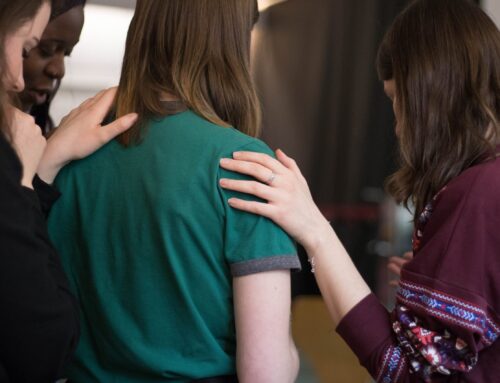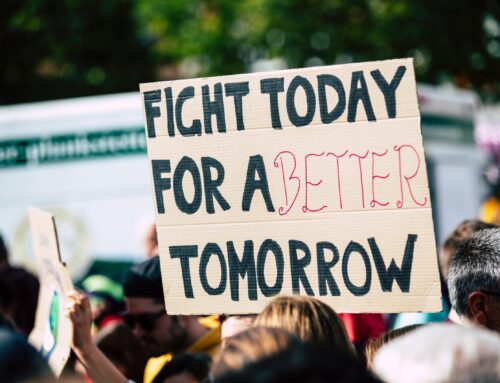
You could even understand it to be discouraging. But we like to think of it as challenging, which is the way this conversation should always start.
Why is the state of higher education challenging? Here are three reasons:
- In particular, the idea of higher education as a public good is challenged, a lot. The assumption that higher education should be provided in order to satisfy public needs and societal goals has been submerged by the notion that higher learning is something that students who get it should pay for; it’s social mobility, job creation, career advancement, economic advantage for them. If that attitude is sustained over time, it will undermine many of the things colleges and universities do best.
- Our collective discovery of the greater depths of division, discord, and even hatred in our country, throughout our culture, and within higher education — including among our students. We are alarmed by the corrosive, galvanizing effects of social and traditional media and by the emergence — or uncovering — of vile attitudes about difference (in all its forms).
- How important the work of Student Affairs — or, more generally, personal and academic support services for students — have become because some of the most important outcomes for students are not acknowledged or measured in the primarily quantitative criteria that support performance-based funding, comparative ratings and rankings of institutions, and alternative processes of accreditation. Too many senior student affair administrators spend most of their time on compliance, risk management, and operational effectiveness, and not enough on student development and learning. Doing that critical work in an environment of legislative and administrative disregard, in which students are repeatedly challenged by fears and/or actual changes in policy that may affect their lives and education in terrible ways, has new and powerful resonance.
Student Affairs Must Improve
Events of the past 12 months have not relieved any of those concerns. The terrorist attack in Charlottesville in August, during a weekend of white supremacist demonstrations and violence (notably including a torchlight procession on the Grounds of the University of Virginia), is only the most chilling example; before and since, there have been lesser and greater incidents of visible hatred on many campuses.
The fundamental principles of freedom of speech and safety have sometimes collided in awful ways, and several campuses (Berkeley and the University of Florida, for example) have expended large sums (imagine, just briefly, what else that money could have been used for) to make those principles at least briefly compatible. Some forms of protest (e.g., “taking a knee” during the national anthem before football games) have caused both spectacular outrage and strong solidarity. The vivid stories of colleges and universities that have suffered cultural, reputational, and financial damage from protests and counter-protests (even now in classrooms) may obscure the less publicized harms experienced by many others. Many administrators try to anticipate and prepare for the next controversial speaker, homecoming game, ill-considered remark by a professor, or demonstration of poor judgment by a student group — any of which could be the spark that ignites a cultural conflagration.
Meanwhile, it is not only the newer forms of unrest and dissonance that continue to divert student affairs professionals from their core work of engaging, supporting, and advancing the learning and success of their students; the past year has seen some of the worst and most public instances of more traditional misbehavior, such as hazing (given the fatal consequences for too many students this past year, hazing needs a more rigorous description than “misbehavior”). A succession of task forces charged with finding a better way forward has not changed the course of these events. Each time a pledge dies, the same sad sequence of useless statements and promises appear; soon enough, attention turns elsewhere, and life within social fraternities returns to its own non-inclusive version of “normal.” It is, of course, the usual divisions of power that sustain this pattern; institutions, fearful of offending wealthy alumni or trustees, frustrated by past failures, or unable to marshal the will and resolve to create a different future enable these societies to continue to endanger the wellbeing, and too often the lives, of other young men. Enough already — but maybe not.
Cultivate Humanity in Student Affairs
Differences define democracy, but of painful concern are the legions of reports from campuses of all kinds that students no longer engage with each other to discuss those differences. The fear of castigation, being “called out,” or social approbation — and, in some cases, threats of violence — have cornered too many students (and, to be honest, too many of us) into silence. Meanwhile, opinions about the value of higher education show remarkable declines among some constituents — even to the point that some observers have (apparently seriously) suggested that the term “liberal arts” be dropped.
All of this makes the work that the professionals in student personal and academic support services, and the sturdy organizations that represent them, do all the more essential. Listening, hearing stories, elevating empathy, acknowledging pain, providing hope — those humane acts, often offered quietly or in the shadows, can make it possible for students, whether they feel alienated because of their political views, worried about being able to continue their educational program, or frightened about the implications of a contentious lunch or residence hall conversation that ended badly, to learn.
Excellence in any of our many fields includes not just the unique specifics of our work (from counseling students about financial aid to connecting them to a trainer in the recreation center or supporting their leadership in a student organization), but the opportunity to connect, engage, and mentor; to listen bravely, and respond helpfully; to offer a fresh perspective or idea. What accreditors and legislatures count is not all that counts. Students should count on us, and that counts a great deal.
Richard P. Keeling, MD, Chairman and Senior Executive Consultant, leads Keeling & Associates, LLC (K&A) and has worked with more than 350 institutions and organizations over more than 25 years of practice. Before founding K&A, Dr. Keeling taught medicine, directed comprehensive health programs and services, and explored innovative, cross-institutional approaches to advancing student learning during 20 years on campus at the University of Virginia and the University of Wisconsin-Madison.






Leave A Comment